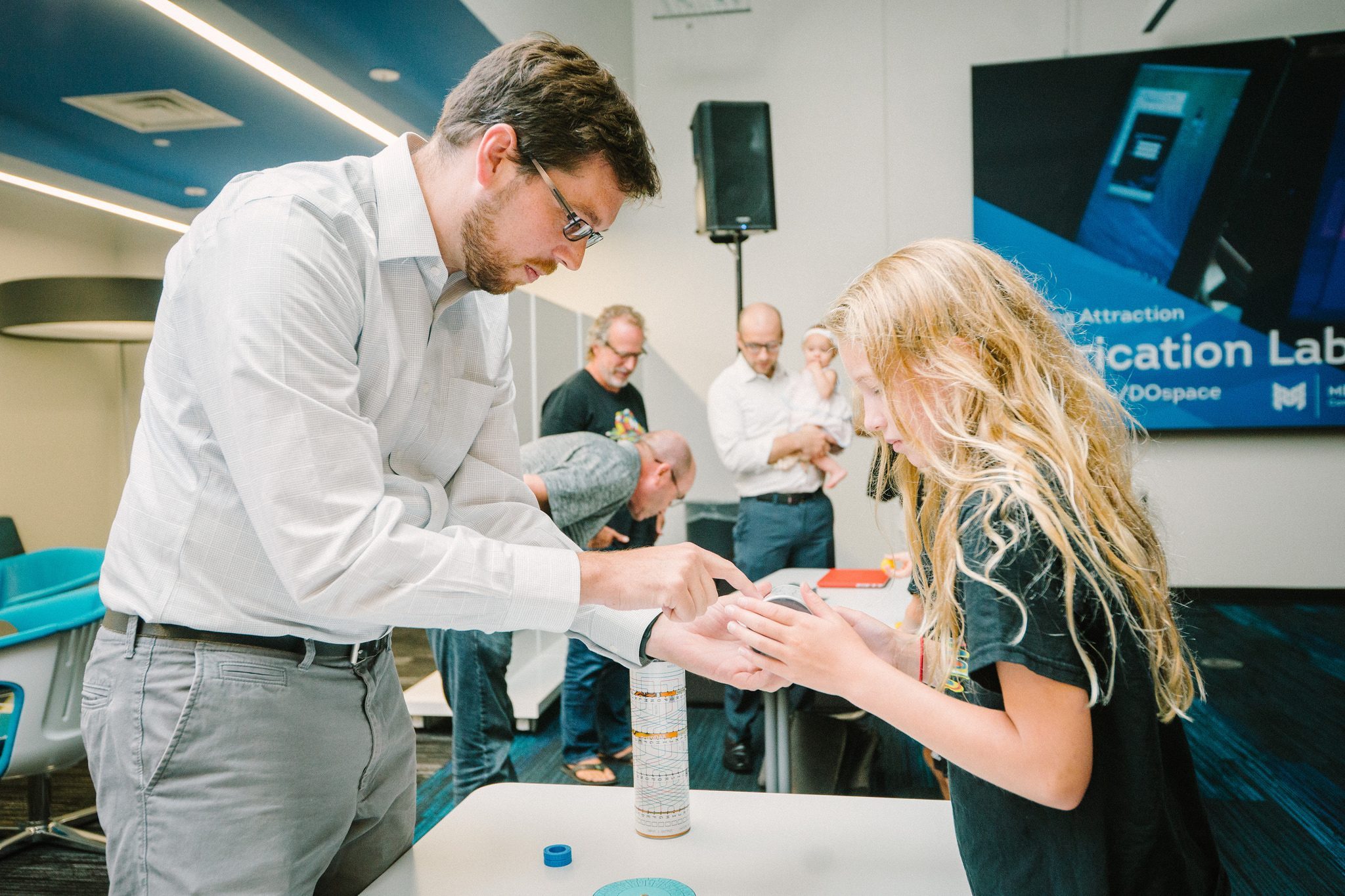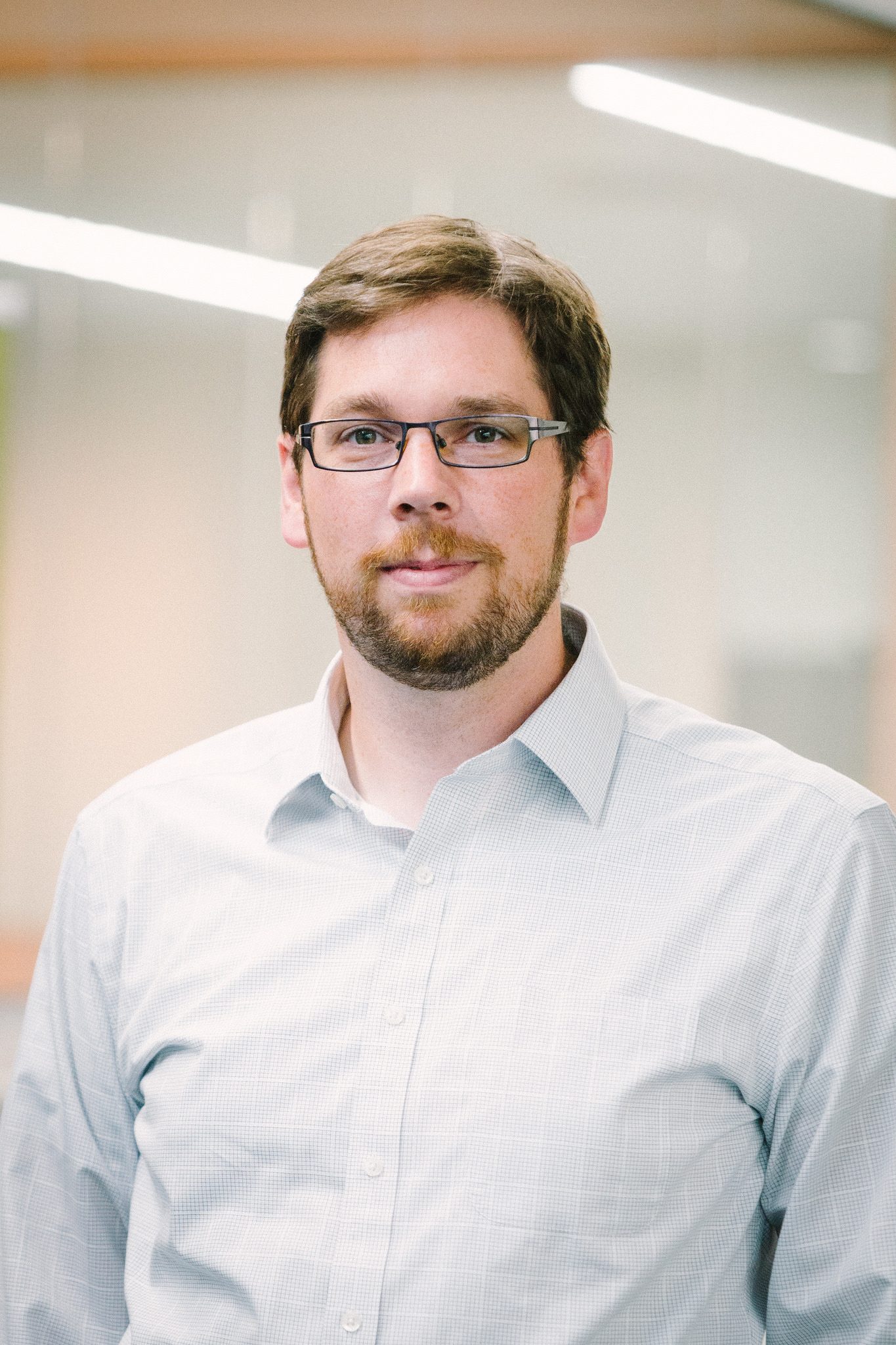The Do Space Innovation Fellowship helps to create opportunities for local teachers, librarians, and educators to create rapid innovation in Omaha. The fellowships are open to teachers, professors, librarians, library workers, and other educators in the Omaha metro area to help with the exploration of projects related to 3D printing, robotics, and software development. The chosen projects will be designed for local schools, libraries, and learning centers to independently administer.
Applicants engaged directly with the Do Space community while working on their projects. They also collaborated with the Science, Technology, Engineering, and Math Initiative (STEM) and the College of Education at the University of Nebraska at Omaha.The 2017 fellowship began in June and ended in July. The chosen Fellows presented their final projects at Do Space in August and we are proud to finally be able to share their work with the Omaha community!
Today we’re excited to introduce Derek Babb, one of the three fellowship finalists. Derek teaches science at Omaha North Magnet High School and created an online educational platform focused on cybersecurity during the Innovation Fellowship. This new material will allow educators to infuse a computer science class with cybersecurity topics or teach a course solely for cybersecurity.
What made you realize there was a need for your project in our community?
I have been teaching cybersecurity at Omaha North high for three years. While our program had grown over this time, there was very little growth of cybersecurity in other schools. The biggest obstacle to schools offering cybersecurity seemed to be a lack of a standardized curriculum or textbook geared toward high schools.
Tell us a little more about your project!
I had developed my course over the years but I also thought it was lacking in a few key areas. What I needed was dedicated time to research, learn, and develop activities that will engage students in cybersecurity activities in a safe, controlled environment so they couldn’t damage anything. I used the fellowship to learn about more in-depth ideas in cybersecurity and to develop lessons appropriate for high school students. I also took the lessons I had done previously with my classes and wrote them in a way that any teacher could take them to use.
What was the most difficult part of developing your project this summer?
The biggest challenge I had in this project, was developing a curriculum that could be used by any computer science teacher without them having to go through all of the research and background work that I did. My hope was that the first time a teacher taught this course, they would essentially be a co-learner with their students. In subsequent years, they would have more insight and knowledge but, despite an initial deficit, students would still find it fun and engaging as an instructor was “learning on the fly”.
How has your project changed since the end of the fellowship?
Since the fellowship, I have continued to develop lessons and as I have run them in my classes, I have made changes, found and fixed typos, and begun to tie the lessons to CSTA and Nebraska education standards. I have also begun applying to present the curriculum at computer science and technology conferences.
How can the public access what you accomplished?
All of my lessons, worksheets, and supporting documents can be found on my GitHub page. My hope is that others will take and modify this work and it will continue to grow and evolve over the next several years. Please visit: https://derekbabb.github.io/CyberSecurity/

